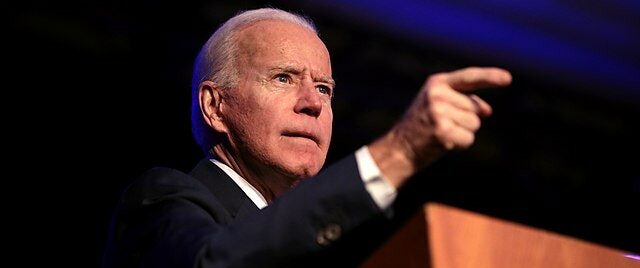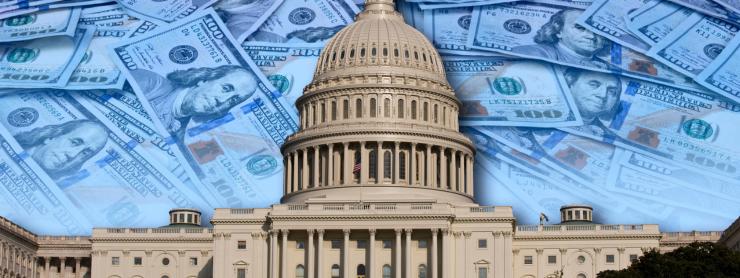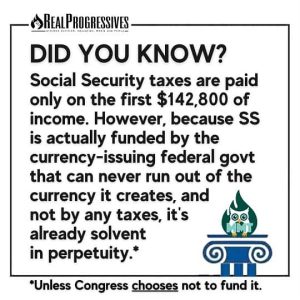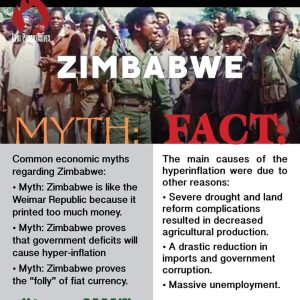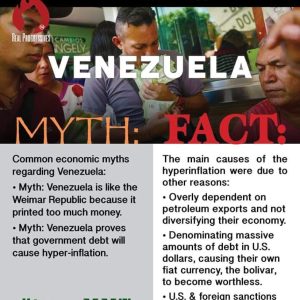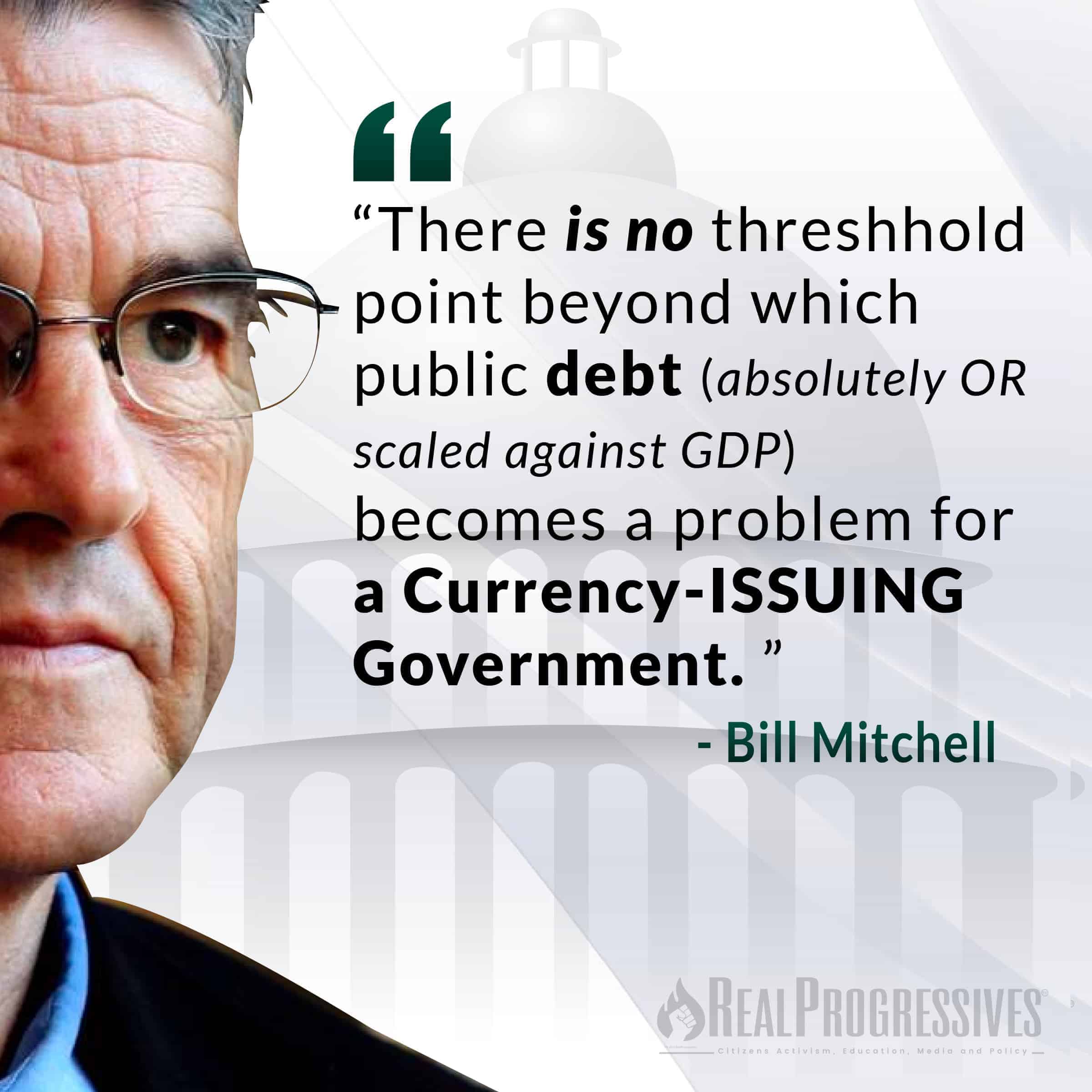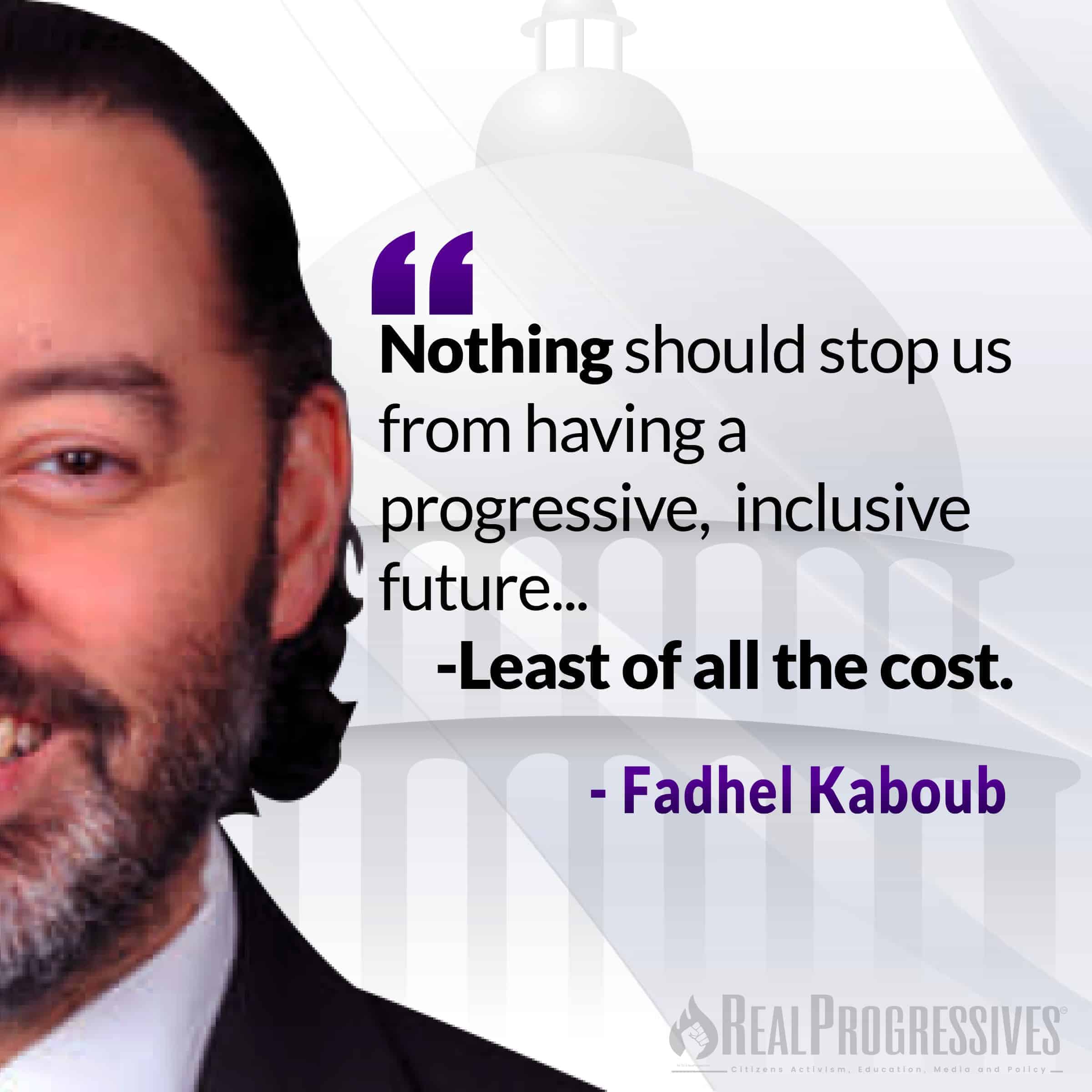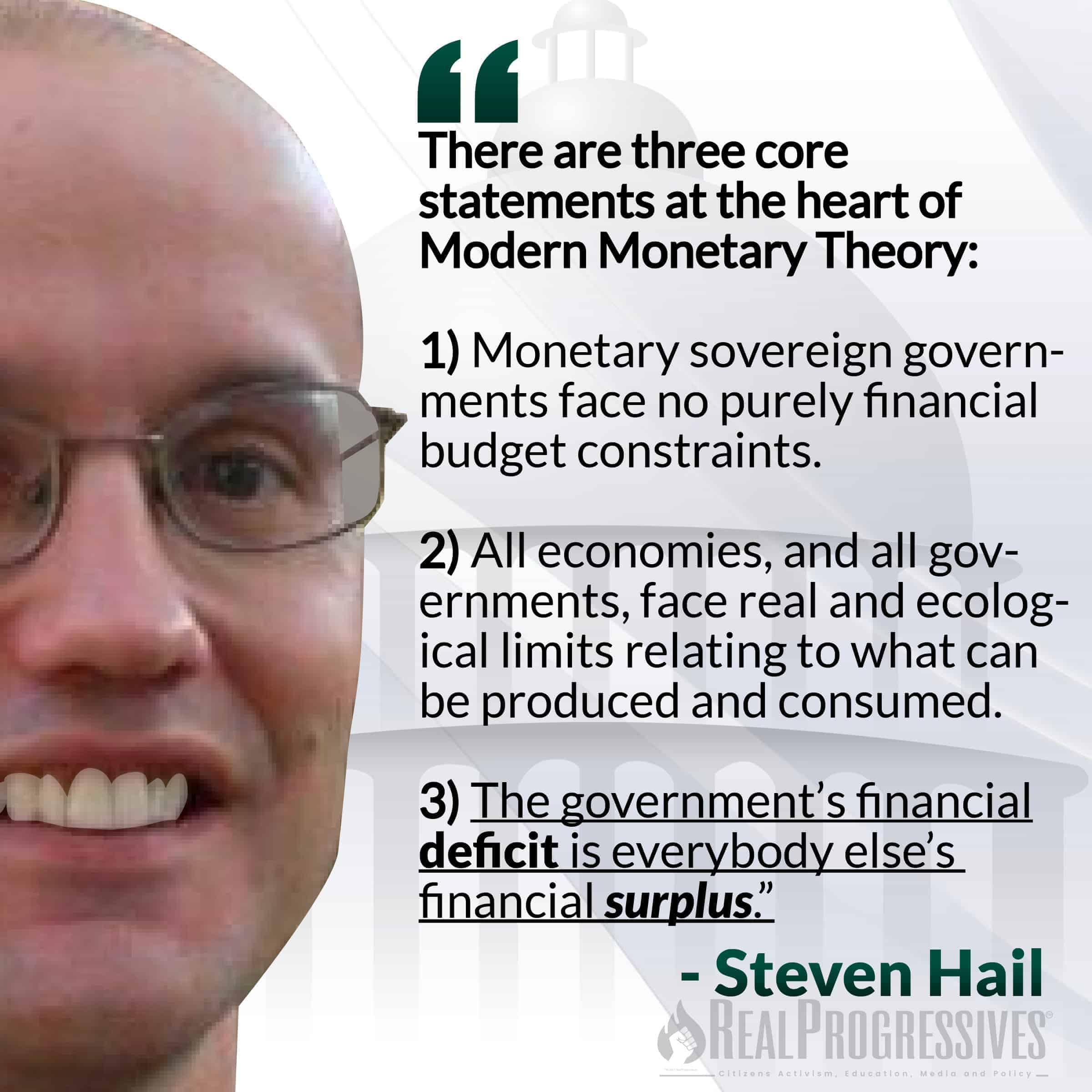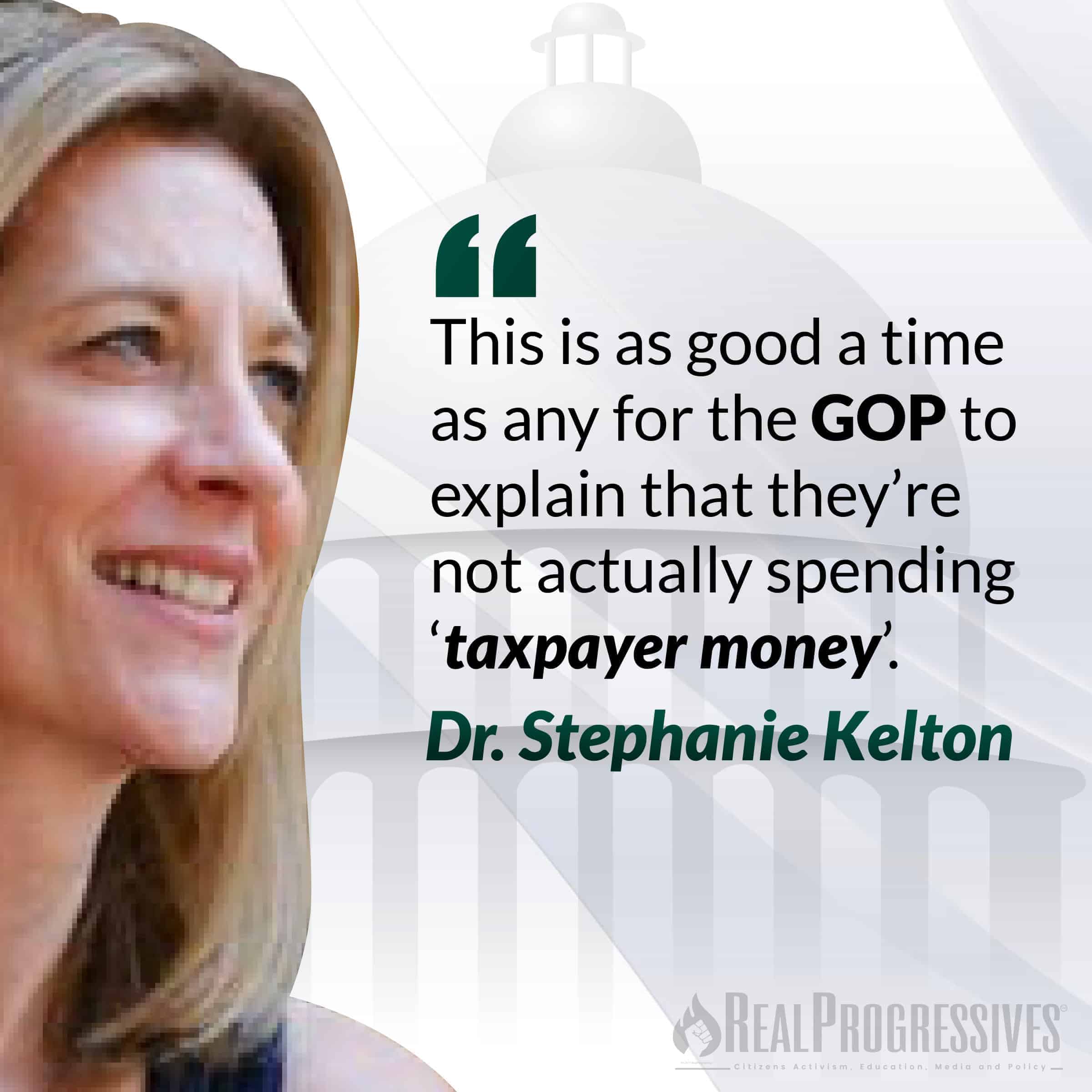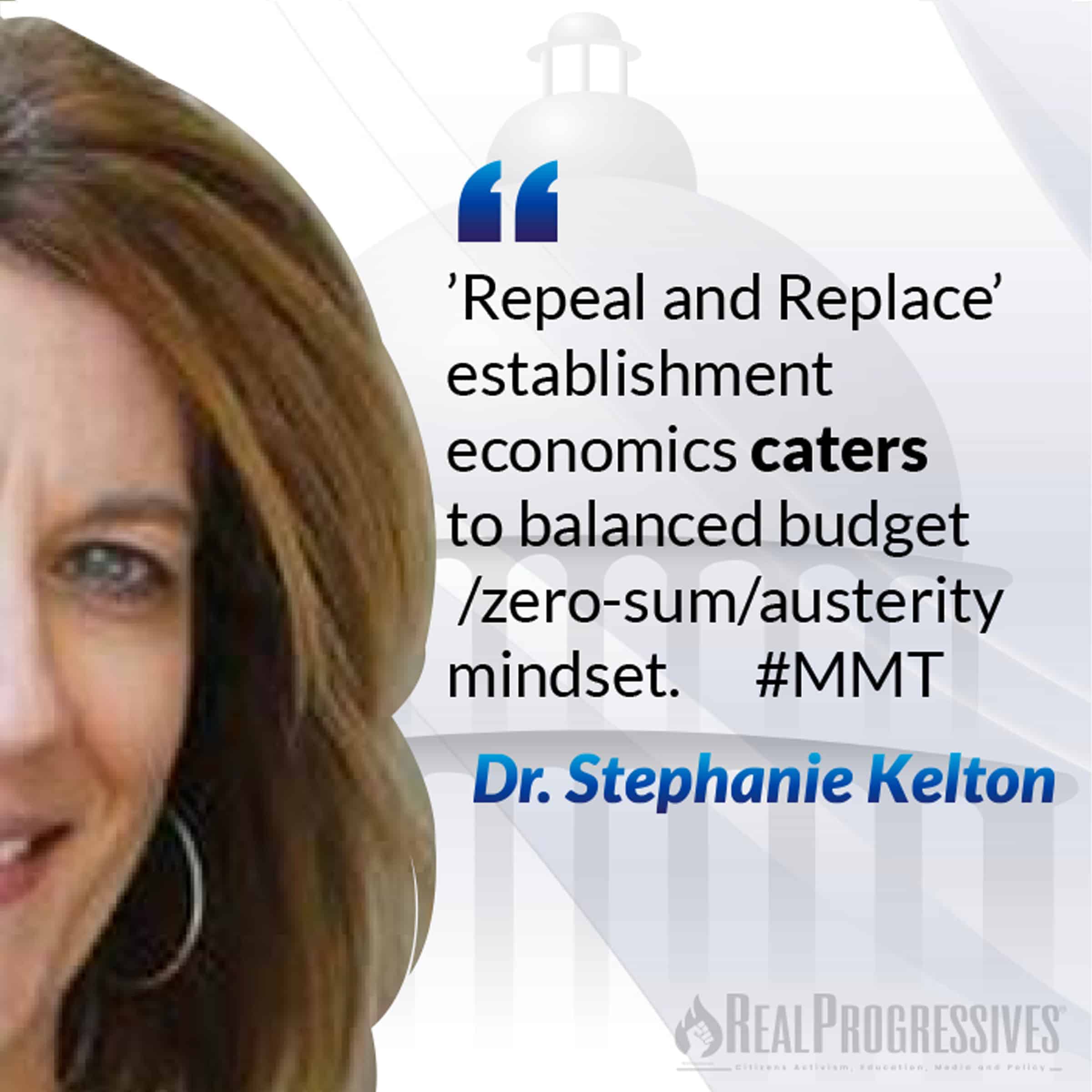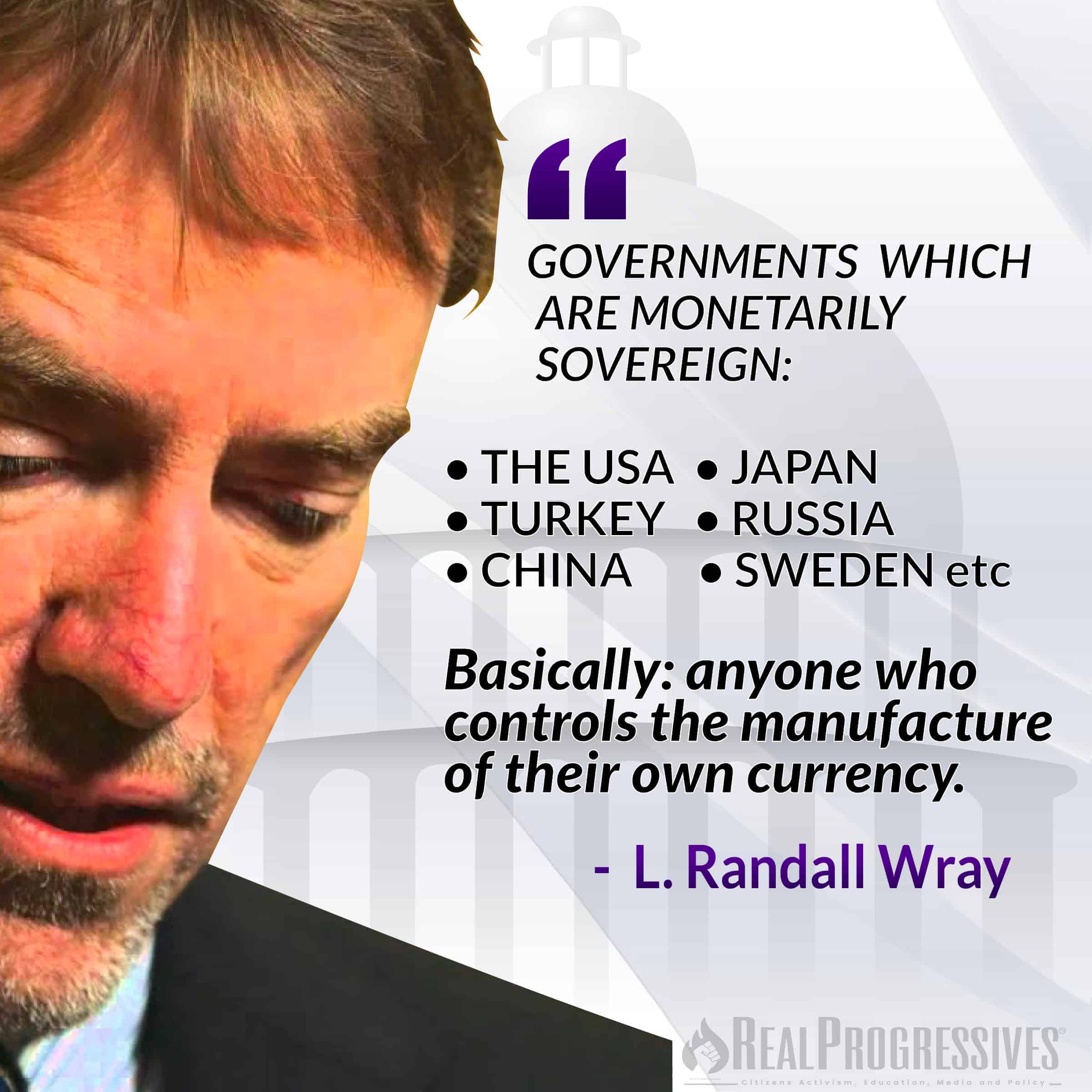Modern Monetary Theory - MMT
What is MMT and how could it completely change your perception of life in a nation with a sovereign fiat currency? Looking for MMT resources in other languages? Try our INTERNATIONAL MMT RESOURCES page.
"If we just keep printing money, we'll devalue the dollar!"
"Printing money will cause inflation!"
"OhEmGee the National Debt!!"
We've all heard loads of rumors...now it's time to get the truth!
Use the arrows or swipe through the slides to learn more.
It's not something to implement someday, it is exactly how our money works TODAY!!
The currency issuer is not constrained to balanced budgeting in the same way as a currency user.
No matter what politicians or talking heads on TV say, when a country issues its own sovereign currency, it can never run out.
That would be like the scorekeeper in baseball running out of points! Crazy, right?
As a matter of fact, in order for us to pay taxes in the first place, the government, the CURRENCY ISSUER, has to create (or spend into existence) the money. Then, we CURRENCY USERS have to find a way to get some money to pay our taxes.
Most governments, most of the time, will run fiscal deficits. This is not a matter of concern, and is indeed a good thing, as it means most private sectors will be able to run the financial surpluses they wish to add to their net savings.
The government’s deficit is our surplus – we should be glad all that money hasn’t been taxed out of the economy!
Browse our MMT focused articles and filter them using the tabs at the top to find a specific topic.
Browse our MMT focused articles and filter them using the dropdown tab at the top to find a specific topic.
- All Articles
- Federal Reserve
- Hyperinflation
- Inflation
- Job Guarantee
- MMT 101
- MMT Academics
- MMT Rebuttal
- National Debt
- Social Security
- Taxation
- All Articles
- Federal Reserve
- Hyperinflation
- Inflation
- Job Guarantee
- MMT 101
- MMT Academics
- MMT Rebuttal
- National Debt
- Social Security
- Taxation
Permanent Cures for Debt Ceiling Crises
Joe Firestone January 30, 2018 Economic Justice Policy Essay
While our attention is on the chaos and consequences of debt ceiling crises, is a good time to consider how we might eliminate them entirely. Here’s a rundown on the four most important methods one can use.
Peace and Reindustrialization: Beyond Thatcher’s Trauma
Carlos García Hernández December 13, 2023 Economic Justice Peace with Justice
The European left suffers from a post-traumatic stress disorder that has its origins in Margaret Thatcher’s policies and does not know how to cope with it in a functional way.
Paying for Populism
J.D. ALT April 3, 2021 Economic Justice Environmental and Ecological Justice
True democracy is populism—is it not? It has always struck me as odd that “populism” is used to describe a fringe politics, motivated by grievances …
One year into Trump’s Second Term
Birrion Sondahl February 3, 2022 Democracy Economic Justice
Only the name has changed, the policies haven’t.
Old Narratives Die Hard
Nathan Locke April 8, 2020 Economic Justice Policy Essay
It’s time to catch up to where we were 80 years ago and recognize reality. Bernie’s ideas aren’t just possible – they’re a brilliant move economically and a moral imperative.
Neoliberalism Kills (Part 2)
Joe Firestone June 4, 2023 * New Economic Perspectives
Its influence is felt even in liberal or progressive organizations, and among progressive commentators and writers, who all share ideas like fiscal policy discipline and tax reform.
Monopoly Describes MMT
Jason Bessey August 28, 2021 Economic Justice Equality with Justice
In short, federal deficits are the dollars we have to play the game.
Monopoly Money: The State as a Price Setter
Pavlina Tcherneva June 12, 2022 Real Progressives
This paper, from Oeconomicus, Volume V, Winter 2002, explores the basis for understanding modern monetary systems as rooted in the monopoly powers of the State.
Money Growth Does Not Cause Inflation!
John T. Harvey November 15, 2021 Real Progressives
It is conventional wisdom that printing more money causes inflation. The only problem is, it’s not true. That’s not how inflation works.
Money and Banking (Part 9 – Banking regulation)
Eric Tymoigne September 20, 2021 * New Economic Perspectives Economic Justice
It may surprise you to know that the banking sector is one of the most regulated industries in the United States.
Money and Banking (Part 8 – The Private Banking Business)
Eric Tymoigne September 19, 2021 * New Economic Perspectives Economic Justice
The US financial system is extremely complicated and this series sheds light only on some corners of that system by focusing on the banking sector.
Money and Banking (Part 7 – Leverage)
Eric Tymoigne September 18, 2021 * New Economic Perspectives Economic Justice
Given that the concept of leverage will be used often in the upcoming posts, this post spends some time explaining what leverage is and some of its impacts on the balance sheet of any economic unit.
Why we need to debunk the 'deficit myth' - BBC REEL
Government spending is increasing at an unprecedented rate to deal with the effects of the coronavirus pandemic. Many people worry this could burden future generations.
However, economist Stephanie Kelton, author of The Deficit Myth, argues that we need to rethink our attitudes towards government spending.
Could Modern Monetary Theory help us navigate our way out of this crisis – and even help build a fairer economy?
Producer: Dan John
Animation: Jacqueline Nixon
(Republished with permission from the BBC)
Weaponizing knowledge, one mind at a time.
Visit our seven focused Knowledge Areas.




